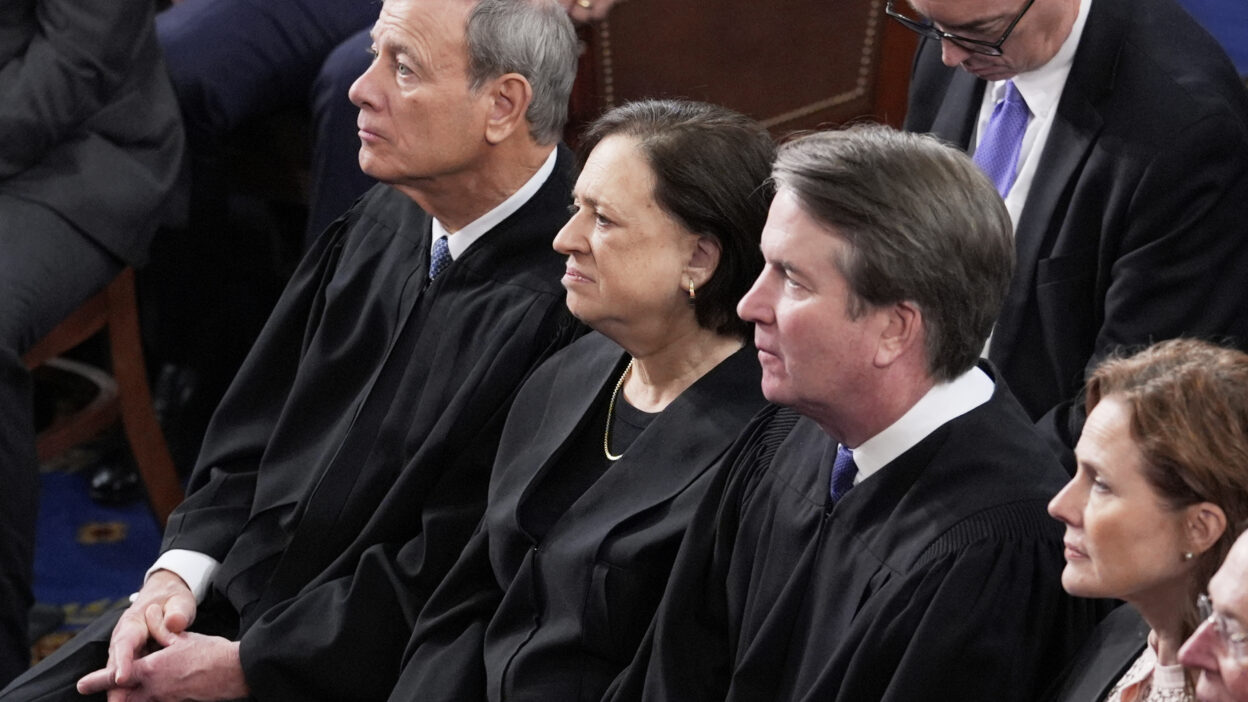On Thursday, the U.S. Supreme Court unanimously reinstated a civil rights lawsuit against Texas police officer Roberto Felix Jr., who fatally shot Ashtian Barnes during a 2016 traffic stop in Houston.
Newsweek reached out to the Fraternal Order of Police via email on Thursday afternoon for comment.
Why It Matters
Barnes, a 24-year-old Black man, was driving a rental car when Felix pulled him over due to unpaid tolls associated with the vehicle. Unaware of the toll violations, Barnes was attempting to retrieve documentation when the car began to move forward.
Felix, who had positioned himself on the car’s door sill, fired two shots, resulting in Barnes’ death.
A grand jury was unable to find him guilty of murder, citing a lack of evidence, and a federal court and the 5th Circuit Court of Appeals dismissed his unreasonable use of deadly force charges under the “moment of threat” doctrine, which determines can discharge their weapon if they feel threatened.

Associated Press
What To Know
The Supreme Court cleared the way to reopen Felix’s case in October 2024, focusing on the nature of a “moment of threat” situation and how it arises as a potential prerequisite for the appropriate application of the case.
Barnes’ mother has appealed the case and argued that Felix put himself in danger by jumping on the car, making himself responsible for the “moment of threat.”
Justice Elena Kagan, writing for the Supreme Court, appeared to agree that the situation warranted further consideration and stated that courts must assess the entire context of such incidents, a standard that could favor plaintiffs in similar civil rights cases.
Justice Brett Kavanaugh filed a concurring opinion, to which Justices Clarence Thomas, Samuel Alito, and Amy Coney Barrett joined.
The Court’s decision emphasized that excessive force claims should be evaluated based on the “totality of the circumstances,” rather than solely focusing on the moment an officer perceives a threat.
This ruling may influence how excessive force claims are evaluated in future cases, potentially affecting the accountability of law enforcement officers nationwide.
What People Are Saying
Civil rights litigator Patrick Jaicomo, on X, formerly Twitter: “Congratulations to [Nathan Zelinsky] on defeating the Fifth Circuit’s moment-of-threat rule in the use-of-force case Barnes v. Felix! In today’s opinion by Justice Kagan, SCOTUS unanimously reaffirms that the reasonableness is based on the totality of the circumstances.”
What Happens Next
The case now returns to the 5th U.S. Circuit Court of Appeals for reconsideration, where the broader standard mandated by the Supreme Court will be applied.
This article contains reporting by The Associated Press.
Update 5/15/25, 3:44 p.m. ET: This article was updated with additional information.



